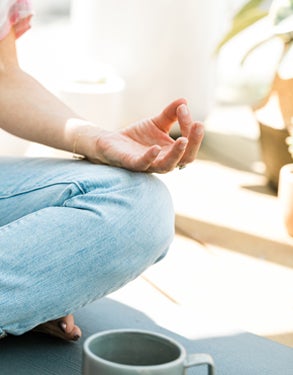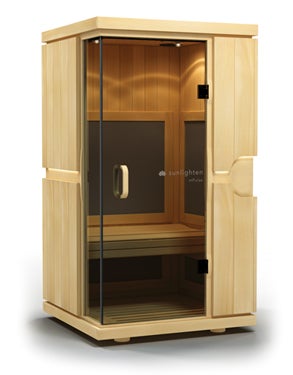Health anxiety is perhaps the primary stress, but other stresses are significant too. The fear of losing your job. The fear of relatives contracting the coronavirus. The fear that your children’s education will suffer.
Significant chunks of the global population are feeling these fears, and many are caused by one thing: Uncertainty. Nobody knows what’s coming next, or when and if things will return to normal.
How, exactly, is this affecting mental health? The data is still young, but rates of anxiety, depression and stress disorders look to be on the rise.2 This trend threatens to become a separate, mental health pandemic—as if one pandemic weren’t enough.
There isn’t an easy solution to this problem. It requires a holistic approach at both the individual and societal level. We need to take care of ourselves and one another.
This article will focus on natural methods to fortify your mental and emotional health. Some of these might surprise you. For instance: Did you know that elevating core body temperature may have long-lasting antidepressant effects?3
First, we’ll explore the landscape of mental health during COVID-19, then we’ll cover potential solutions. Read on.
Mental health, according to the World Health Organization (WHO), is “a state of well-being in which the individual realizes his or her own abilities, can cope with the normal stresses of life, can work productively and fruitfully, and is able to make a contribution to his or her community”.4
But as we all know, this state of wellbeing can be derailed. And mental health is derailed—during the pandemic and in general—by anxiety and stress.
Normally, some level of health anxiety is protective. It keeps you alert to things going wrong in your body, then you can take steps (like visiting the doctor) to mitigate that threat.
But during a pandemic, health anxiety can become crippling. Everywhere you turn, there are stories and images of people suffering from illness. This can lead to feelings of paranoia and nights of lost sleep. Unfortunately, this doesn’t do your immune system or mood any favors.
Financial and job-related stress is another big one. COVID has wrecked multiple sectors of the economy, leaving many people jobless. This kind of financial stress, one study found, is directly linked to symptoms of anxiety and depression.5
Similarly, uncertainty over the future—always part of life—is especially high right now. Will a working vaccine be developed? Will my loved ones survive? How will things look one year from now? These questions don’t have clear answers, and it’s stressing people out.
Finally, the social landscape is shifting. It’s harder to hang with friends and family, touch is discouraged, and children are staying home from school. We are a social species. This is not easy.
But humans are resilient, especially when we apply liberal amounts of self-care. The rest of this article is devoted to ways to increase mental and emotional resilience during these challenging times.
Beyond drugs and psychiatry—both of which have their place—there’s a lot you can do at home to boost your mood. Some of these tips (like getting a good night’s sleep) you’re probably aware of. But others might surprise and inspire you.

We don’t need science to tell us that quality relationships are the bedrock of a happy life. Still, it’s fun to look at the data. One study out of Finland, for instance, found that better social networks were correlated with more positive emotions.6
Social support also helps reduce stress during extreme times. In one study, breast cancer patients with better social support had lower levels of the stress hormone, cortisol.7 Another study found that head trauma patients were less likely to develop PTSD if they joined support groups during their hospital stay.8
Social distancing doesn’t make human connection any easier, but it’s still possible. Host a driveway or backyard happy hour where social distancing is possible. Double down on your closest relationships, and spend Zoom or phone time with friends and family you can’t see in person.

Many researchers now subscribe to the inflammatory cytokine model of depression. This model places inflammation, not serotonin, as the key chemical driver of a depressed mood.9
What causes the low-level immune response known as chronic inflammation? Lots of things, but a diet high in sugar and vegetable oils is front and center.
Hmm, sugar and vegetable oils. Sounds familiar. Oh right, those are huge sources of calories in the Standard American Diet (SAD)!
Eating the SAD makes you sad. Easy to remember, at least.
Fortunately, eating a healthy, anti-inflammatory diet isn’t super complicated. Just avoid sugar and vegetable oils and focus on whole foods like meat, fish, eggs, fruits, and vegetables.
Fatty fish, like salmon, are especially anti-inflammatory thanks to their high omega-3 fatty acid content. In fact, multiple studies have shown that supplementing with EPA (an omega-3) reduces depressive symptoms.10

If my environment dictates my mood, then my life will feel like a roller coaster,” says New York Times bestselling author Gabby Bernstein. “The way to steady ground is through my breath.”
During times of crisis, the mind gets tossed about more than usual. Anxious thoughts can spiral out of control.
Having a meditation practice can help. Mindfulness meditation, for instance, has been shown to reduce both stress and anxiety in a variety of populations.11
The instructions for mindfulness meditation are simple. You begin by focusing on your breath, and then progress to thoughts, sensations, and emotions as they arise in consciousness.
While the inspiration is fresh, check out Gabby’s website for a bunch of awesome resources on dialing in your meditation practice.

You probably have more free time right now. Why not use that free time to learn something new?
When you’re focused on learning—especially a challenging new skill—there isn’t room for anxious or depressed thoughts. It’s just you and the learning process.
What should you learn? Consider a complex physical skill. In one German study, researchers found that teaching older folks a dance routine strengthened several brain regions—including the hippocampus—involved in emotional processing.12
There are always great class options at your local community college. Take a photography or other type of art class, take up gardening and try some new recipes with what you grow, have your kids teach you Tic Toc (everyone is doing it!) or check out Apple’s new online resource for creativity projects at home.

Exercise is a well-documented mood enhancer. This effect has been noted for aerobic exercises like walking, jogging, swimming, and cycling—and for strength training.13
Why does exercise boost your mood? Here are some possible reasons:
- By boosting blood flow to your brain
- By stimulating the release of adrenaline and noradrenaline (excitement hormones)
- By stimulating the release of endorphins (happy, painkilling hormones)
- By elevating your core body temperature
- By distracting you from other problems
Yes, we know, many gyms are closed right now. But exercising in nature is ideal from a stress-busting perspective anyway!

As you might expect, sleep quality is declining during the pandemic. It’s hard to drift off when your mind is bouncing around like a caffeinated chipmunk.
Yet now more than ever, quality sleep is crucial. Quality sleep not only supports a robust immune system, but it also helps you stay positive.
In one study, researchers had 208 people track their sleep patterns and moods over 6 weeks with mobile apps. The results were interesting. The effect of sleep on next day mood was powerful, but the effect of mood on sleep was far less pronounced.14
In other words, sleep affects mood more than mood affects sleep. Good news for these anxious times when we need simple and effective remedies.
To improve your sleep, try these tips:
- Avoid bright light and screens about 3 hours before bed (this preserves melatonin, your sleep hormone)
- Keep your bedroom dark and cool (around 65 to 68 degrees)
- Gently elevate your core body temperature with a warm bath or infrared sauna
More on this last tip coming up.

When you use an infrared sauna, infrared waves gently warm your skin and body. This not only stimulates beneficial sweating, but also slightly raises your core body temperature.
This gentle hyperthermia, researchers believe, is responsible for the mood-boosting effects observed from sauna therapy. With this in mind, let’s look at two studies on infrared sauna therapy for depression.
The first, published in JAMA (a super prestigious journal) in 2016, found that one session of near infrared sauna therapy reduced symptoms of mild to moderate depression compared to placebo for over six weeks.3 Six weeks of improvement with just one session!
By the way, this was a randomized placebo-controlled study, the gold standard of science. What was the placebo treatment, you ask? An identical-looking sauna device, sans infrared rays.
Another group of researchers tested more frequent infrared therapy—20 half hour sessions over four weeks—in mildly depressed people. After the four weeks were up, the infrared group was feeling more relaxed, and they had a keener edge to their appetites.15
Infrared sauna therapy can also be useful in combating stress. Research has shown, for example, that sauna therapy can lead to reductions in cortisol, your “stress hormone.” 16
This stress relief benefit is usually what Sunlighten customers rave about the most – oftentimes it’s the bonus they discover when using the sauna for detox or pain relief or some other therapeutic reason. To learn more about the health benefits, including benefits on the immune system, you can go to powerful benefits of Sunlighten’s infrared therapy or complete this form to chat with one of our consultants.
The pandemic is stressful. People are afraid of getting sick, afraid of money troubles, and afraid their kids won’t get the education they need.
Because of this, self-care is critical to stay resilient and foster positive emotions.
This self-care can take many forms. Meditate, learn new things, stay connected with loved ones, eat an anti-inflammatory diet, go for a hike, sleep eight hours per night, and consider infrared sauna therapy.
Doing these things won’t banish stress, anxiety, or bad moods permanently. Negative mental states will always be part of life. But they should help tip the balance in your favor.
Finally, this advice is no substitute for working with a mental health professional. If you or someone you know is having serious mental health issues, the CDC has a great resource for finding help.
Stay safe and stay healthy!



